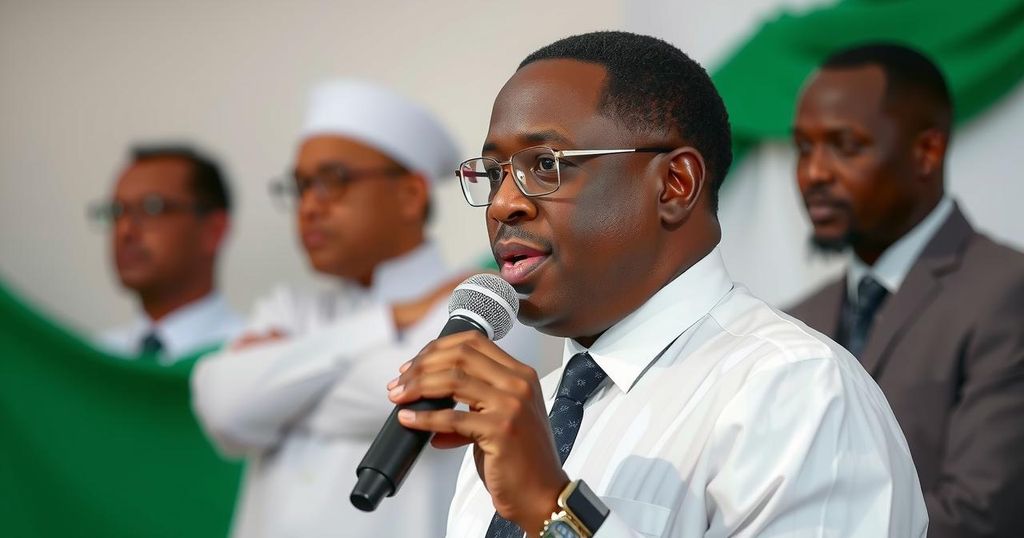World news
AFRICA, AGYEMANG, COSTA RICA, DEMOCRACY, ELECTORAL COMMISSION OF GHANA, GOVERNANCE, GOVERNMENT, JOHN DRAMANI MAHAMA, JUBILEE HOUSE, LIBERIA, MAHAMUDU BAWUMIA, NAANA JANE OPOKU, NATIONAL DEMOCRATIC CONGRESS, NIGERIA, NORTH AMERICA, NPP, PARLIAMENTARY SEATS, POLITICS, SENEGAL, UK, US
Ethan Kumar
0 Comments
Ghana’s 2024 General Election: Insights for Nigeria’s Democratic Evolution
Ghana’s recent election on December 7, 2024, saw John Dramani Mahama elected president amid a 60.9% voter turnout, reflecting a political shift and the historic election of the first female Vice President, Naana Jane Opoku-Agyemang. The election underscored a need for Nigeria to learn from Ghana’s experiences, including management of electoral tensions, gender representation, and civic engagement practices, while navigating challenges including post-election violence and electoral integrity issues.
On December 7, 2024, Ghana conducted its ninth general election since the Fourth Republic was established in 1992. The Electoral Commission, led by Chairperson Jean Mensa, declared John Dramani Mahama of the National Democratic Congress as the president-elect on December 9, after he received 56.55% of the votes cast. The election, contested by 12 of the 15 registered political parties and four independent candidates, witnessed a voter turnout of 60.9%. This event highlights significant lessons that Nigeria can learn from Ghana’s democratic processes, especially given similar historical contexts and challenges faced by both nations.
The election in Ghana marked a noteworthy political shift, with Mahama securing a landslide victory over his competitor, Dr. Mahamudu Bawumia of the governing New Patriotic Party, who garnered 41.61% of the votes. A critical moment in the election was Bawumia’s concession call to Mahama, demonstrating a commendable spirit of statesmanship that helped to mitigate post-election tensions. Additionally, this election crowned Ghana’s first female Vice President-Elect, Prof. Naana Jane Opoku-Agyemang, a significant milestone in gender representation in politics.
Historically, since 1992, no political party in Ghana has won consecutive elections, reflecting a broader trend of political shifts across the region. The results of the November 2023 elections in Liberia and similar electoral upheavals in Senegal, the UK, and the U.S. point toward declining public support for ruling parties due to rising living costs, inflation, and unemployment, trends that also resonate in Nigeria’s political environment.
Ghana’s election, though celebrated, was not entirely devoid of issues. Reports indicated instances of post-election violence, resulting in casualties and arrests related to electoral offenses, alongside claims of electoral malpractice such as vote-buying. This highlights challenges that both Ghana and Nigeria must address to enhance electoral integrity.
Moreover, both Ghana and Nigeria share numerous similarities in their political frameworks, including a multiparty system and a shared history of British colonialism. However, significant differences exist, such as Ghana’s provision for independent candidacy and a single electoral management body, the Electoral Commission of Ghana, in contrast to Nigeria’s bicameral legislature and dual electoral commissions.
It is evident that Ghana’s electoral process exhibits strengths from which Nigeria could benefit, including a more vibrant political culture, early voting provisions, and greater gender inclusion in political office. As Nigeria prepares for its next elections, it must consider these lessons to improve its electoral integrity and citizen engagement. The recent developments in Ghana’s political landscape serve as both a beacon of hope and a guide for Nigeria’s future electoral endeavors.
Ghana’s 2024 general election was significant as it represented a critical juncture in the nation’s democratic journey, marking the continuation of its Fourth Republic that began in 1992 following periods of military rule. Ghana’s political history is marked by the consistent alternation of power, with no party managing to win consecutive terms since the inception of the current constitution. The election results further illustrated broader trends of political volatility seen across West Africa, where citizens are increasingly demanding accountability and change from their governments. This context serves as an important backdrop from which Nigeria could analyze and adopt best electoral practices.
In conclusion, Ghana’s recent elections present vital insights for Nigeria’s electoral system and political culture. The practices observed, particularly regarding voter turnout, concession politics, and gender inclusion in leadership, are areas that Nigeria could explore to enhance its democratic processes. The necessity for a more robust civic political culture and mechanisms that encourage participation without intimidation is critical for Nigeria as it approaches future elections. With Ghana’s establishment of a new Vice President and the reinforcement of democratic values, Nigeria stands to gain by learning from its neighbor’s successes and challenges.
Original Source: punchng.com



Post Comment